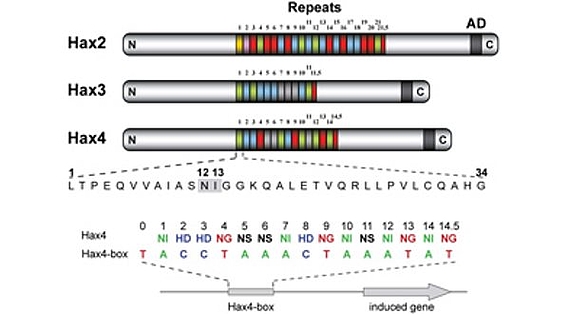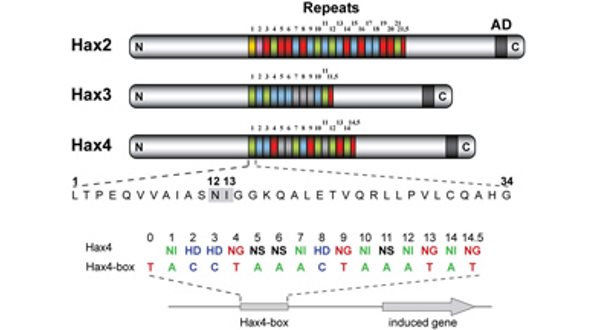Research in the Boch group



Our group uses genome editing to develop crops such as rice, potato, peanut or mustard with improved properties. To this end, we are developing new TALEN and CRISPR tools and investigating the strategy of plant pests.
Bacterial plant pathogens and their weapons
Two organisms fight to survive. The prokaryote aims to acquire nutrients whereas the eukaryote aims to protects the integrity of its cells.
Plants are well able to defende themselves and only specialized pathogens can colonize them. These pathogens have evolved sophisticated molecular weapons. Pseudomonas syringae and Xanthomonas bacteria use a type III secretion system (T3SS) to inject ca. 30 different effector proteins into plant cells (Fig. 1). These effectors sabotage the host cell from within (Fig. 2) and we study their molecular activities.
TALEs (transcription activator-like effectors) from rice-pathogenic Xanthomonas oryzae induce plant SWEET sugar exporters. X. oryzae strains can harbour up to 26 different TALEs and we explore which plant genes are targeted.









Head


30419 Hannover




